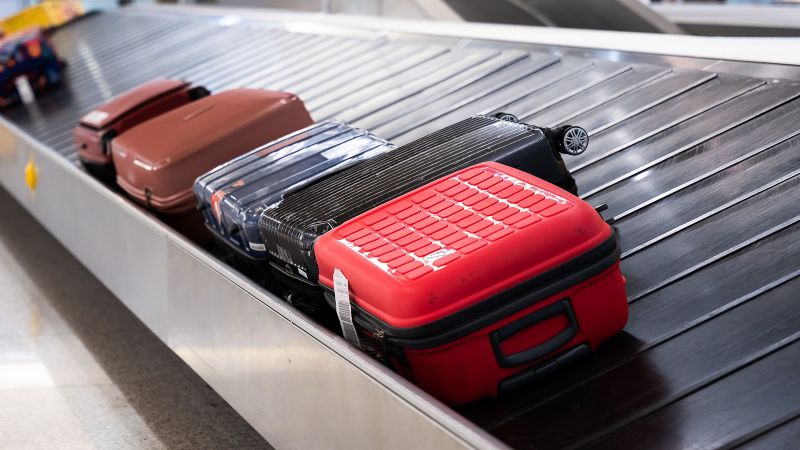
Why checked bag fees are at record highs
CNN
A United Airlines round-trip ticket from Denver to Dallas in late March is advertised for $91. But checking one bag at the airport both ways will cost an extra $80 — nearly as much as the flight.
A United Airlines round-trip ticket from Denver to Dallas in late March is advertised for $91. But checking one bag at the airport both ways will cost an extra $80 — nearly as much as the flight. Checked bag fees are hitting record highs as airlines up the ante. Bag fees are lucrative revenue for airlines and a way to save on taxes, airline experts say. Last week, American Airlines said it was raising luggage fees by $5. American will charge $40 for customers who don’t first prepay online and $35 if they do. United, JetBlue and Alaska Airlines have also announced fee increases this year. (Southwest is the only airline that does not charge for checking bags. Delta charges $30 for a first checked bag, but has not raised its prices since 2018.) Luggage fees feel like they’ve been around forever, but they are a relatively new phenomenon. In 2008, American became the first major US airline to charge customers for checking a bag, instituting a $15 fee. Airlines also charge extra for bags that weigh over a certain threshold, often 50 pounds. Charging for bags separately, a move known as “unbundling,” is a way to move part of the price out of the base airfare and into fees for tax savings purposes. said Gary Leff, an expert on the airline industry and founder of the travel website View from the Wing. Domestic airfares are subject to a 7.5% federal excise tax, but that tax doesn’t apply to airline fees. So an airline can save $75 million in tax fees off its $1 billion revenue in domestic checked-bag fees.

Travis Tanner says he first began using ChatGPT less than a year ago for support in his job as an auto mechanic and to communicate with Spanish-speaking coworkers. But these days, he and the artificial intelligence chatbot — which he now refers to as “Lumina” — have very different kinds of conversations, discussing religion, spirituality and the foundation of the universe.





















 Run 3 Space | Play Space Running Game
Run 3 Space | Play Space Running Game Traffic Jam 3D | Online Racing Game
Traffic Jam 3D | Online Racing Game Duck Hunt | Play Old Classic Game
Duck Hunt | Play Old Classic Game










